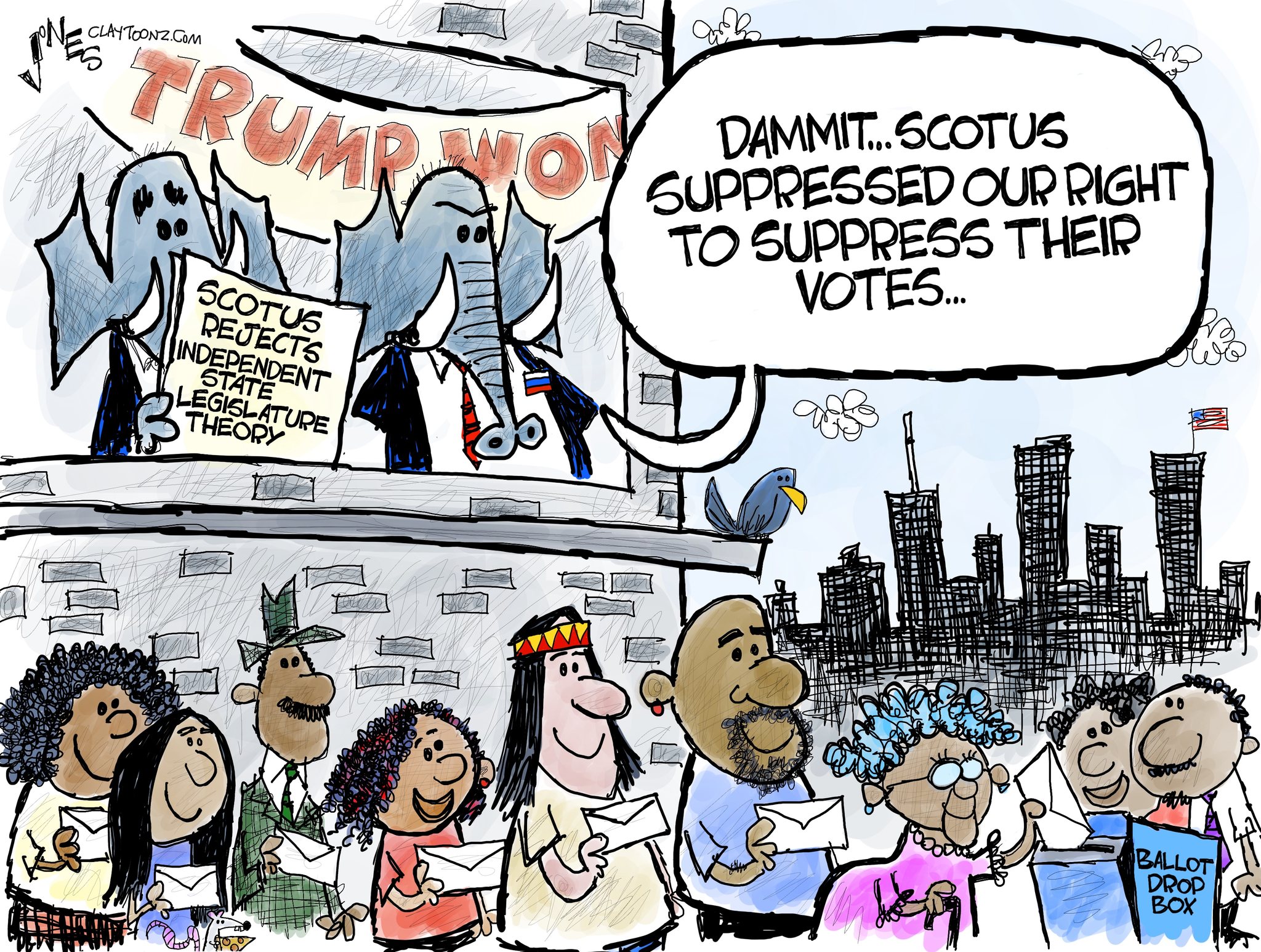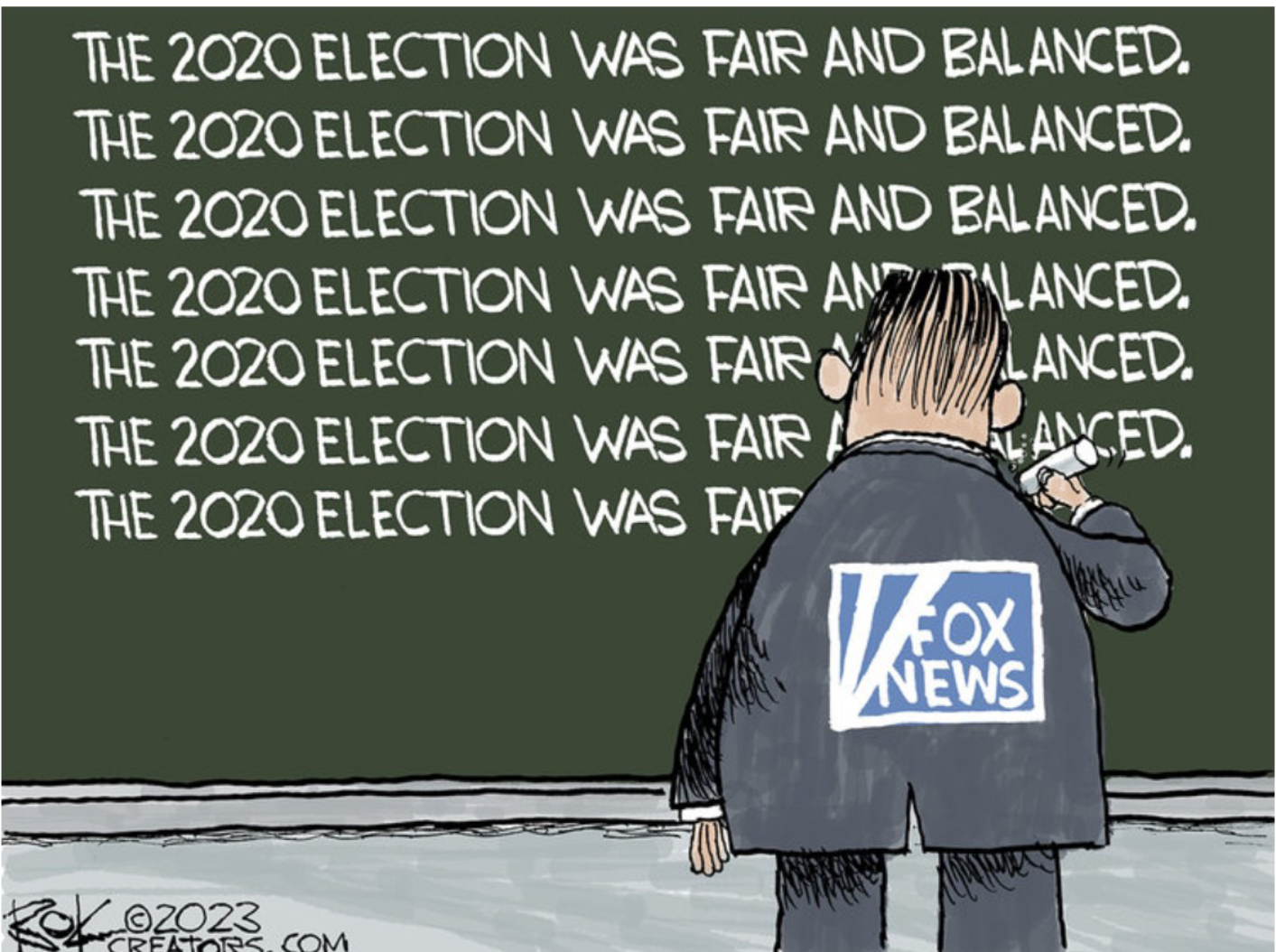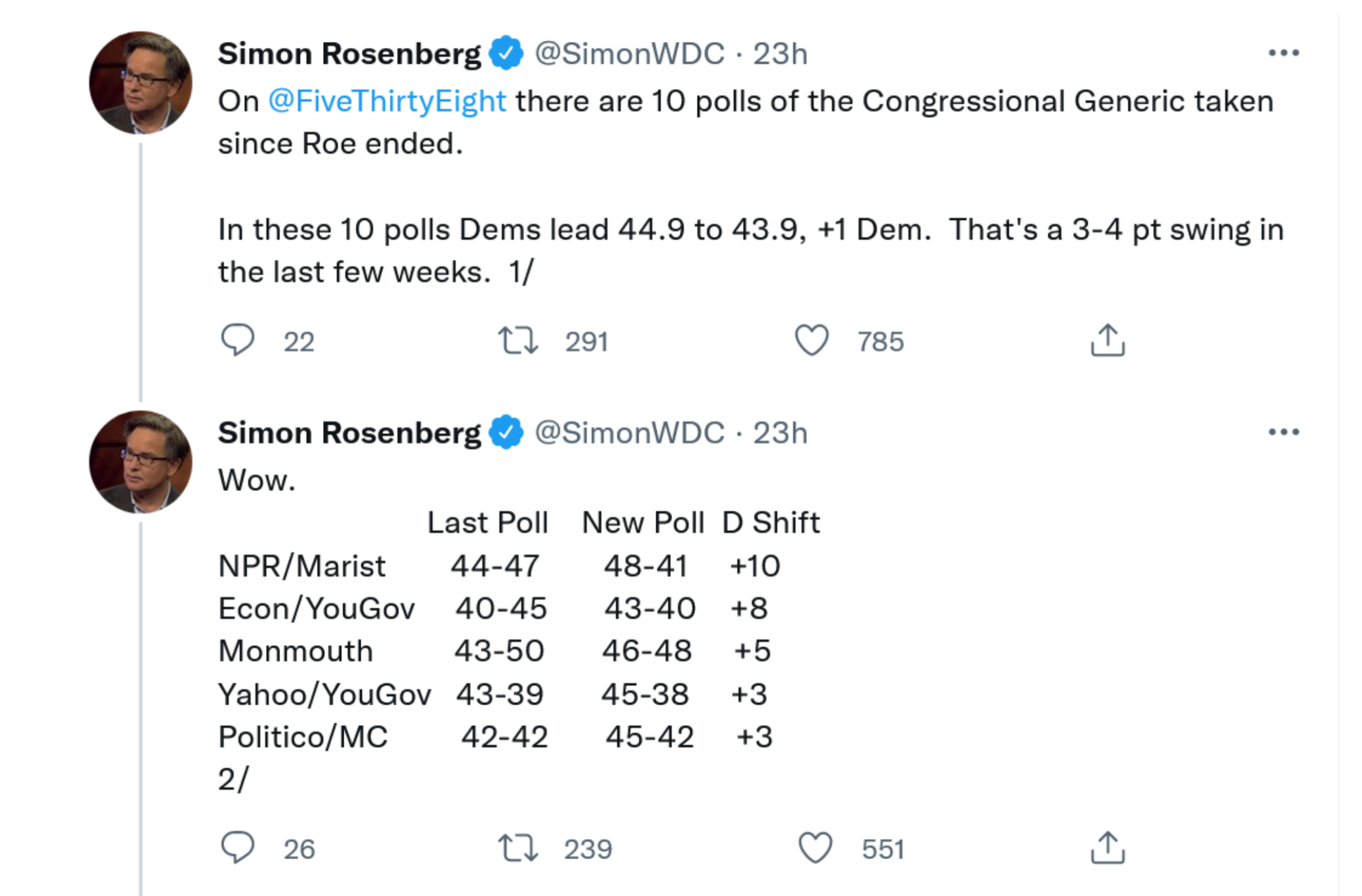The Daily Escape:

Snow Canyon, UT – October 2023 photo by Cathy Mortensen
(We will not publish a Saturday Soother this week, but there will be a Sunday cartoons column)
In doing research for this week’s Fascism in America column, Wrongo came across this from Rick Perlstein:
“And I think…what…we have in the United States: a very weak political establishment, but a civil society underneath it that’s looking for a kind of expression. And the expression that it’s taking is pathological….Because the party system is unable to answer the demands they have.”
A weak political establishment means that Congress can barely get out of its own way. Our political institutions have become ineffectual. The current Congress is setting records for inaction:
“The 118th Congress is on track to be one of the most unproductive in modern history, with just a couple dozen laws on the books at the close of 2023…”
This void is being filled by judicial or political opportunists. This is even true when the US Supreme Court hands down a decision that Republicans don’t like. From the Texas Tribune:
“The US Supreme Court…ordered Texas to allow federal border agents access to the state’s border with Mexico, where Texas officials have deployed miles of concertina wire…..For now, it effectively upholds longstanding court rulings that the Constitution gives the federal government sole responsibility for border security.”
Last October, Texas sued the federal government after Border Patrol agents cut some of the wire strung along the Rio Grande, arguing the Department of Homeland Security destroyed the state’s property and interfered in Texas’ border security efforts. But in a 5-4 decision the Supreme Court vacated a previous injunction from the 5th US Circuit Court of Appeals that prevented Border Patrol agents from cutting the wire.
So what does a sovereign state like Texas do in response? It’s governor Greg Abbott, issued a “Statement on Texas’ Constitutional Right to Self-Defense,” following calls by numerous Texas Republicans to resist the high court’s order. Abbott’s statement says that he had invoked his state’s “constitutional authority to defend and protect itself” which “is the supreme law of the land and supersedes any federal statutes to the contrary.”
OK, is it secession time anybody?
Houston Public Media quotes Charles “Rocky” Rhodes, teacher of constitutional law at South Texas College of Law in Houston:
“That’s a real blow to our separation of powers and the way that this country has governed itself….There have been situations in the past where governors and state officials have defied the Supreme Court, but that has led to constitutional crises.”
Teddy Rave, at the University of Texas at Austin School of Law, another constitutional law expert, described the calls to defy the high court’s order as unconstitutional and dangerous:
“The last time that I’m aware of that this kind of defiance actually happened was resistance to desegregation orders after Brown v. Board of Education….The Supreme Court didn’t take it kindly and issued a unanimous decision in Cooper v. Aaron explaining that states need to follow its constitutional rulings.”
But since it’s Texas, won’t the Supremes give the Republican governor a hall pass to run amuck over the Constitution? Maybe so, maybe no. The decision was 5-4, meaning that two of the six conservative Supreme Court justices said Abbott had to comply. Could one switch sides? Certainly.
What can Biden do if Abbott refuses to comply with SCOTUS’s decision? He could federalize the Texas National Guard, which is what happened in Arkansas in 1957, when the then-governor Faubus tried to defy court orders allowing Black students to attend white schools in Little Rock.
Much like Abbott, Faubus’s fight was politically motivated. Faubus used the Arkansas Guard to keep blacks out of Central High School largely because he was frustrated by his political opponents’ success in using segregationist rhetoric to whip up support with white voters.
That eventually led President Eisenhower to federalize the Arkansas National Guard to effectively remove them from Faubus’s control. Eisenhower then sent the 101st Airborne Division to Arkansas to protect the black students and enforce the federal court order. The Arkansas National Guard later took over those protection duties, and the 101st Airborne returned to their base.
There seems to be a growing movement in Texas to fight the SCOTUS decision. A Texas nationalist urged Abbott to militarize the Texas State Guard if Biden federalizes the Texas National Guard. The Texas State Guard cannot be federalized. It has about 1,900 personnel, substantially smaller than the roughly 23,000 members of the Texas National Guard, but Abbott could attempt to beef up its headcount.
The Hill is reporting that Trump has urged states to deploy National Guard troops to Texas in support of Abbott. Various Right-wing twitter accounts are reporting that 25 Republican states have signed a statement supporting Texas against the Supreme Court. It’s not certain as Wrongo writes this is if these reports are true, but a presidential candidate and the governors of several states challenging the federal government seems an awful lot like the beginning of an insurrection.
Their joint statement isn’t in support of Texas, it’s in support of treason. This is what America has come to. It’s also symptomatic of the Supreme Court’s inability to check radical Trump-placed judges in lower courts who issue rulings with devastating consequences for democracy and human rights. States have no constitutional prerogative to nullify federal law. This principle was established during the nullification crisis of the 1830s and the Southern resistance to desegregation during the Civil Rights era. Nor, under the Constitution’s supremacy clause, can states interfere with the lawful exercise of federal authority. This rule is one of the oldest and most entrenched in all of our Constitutional law.
We often talk about Constitutional crises, and this could easily become one if Abbott and his enablers try to limit by force the US Border Patrol’s access in the upcoming days.
It’s also a test for Biden in an election year. Will he have to put down another insurrection by Republicans? If he does, what will be the political fallout?
Stay tuned.



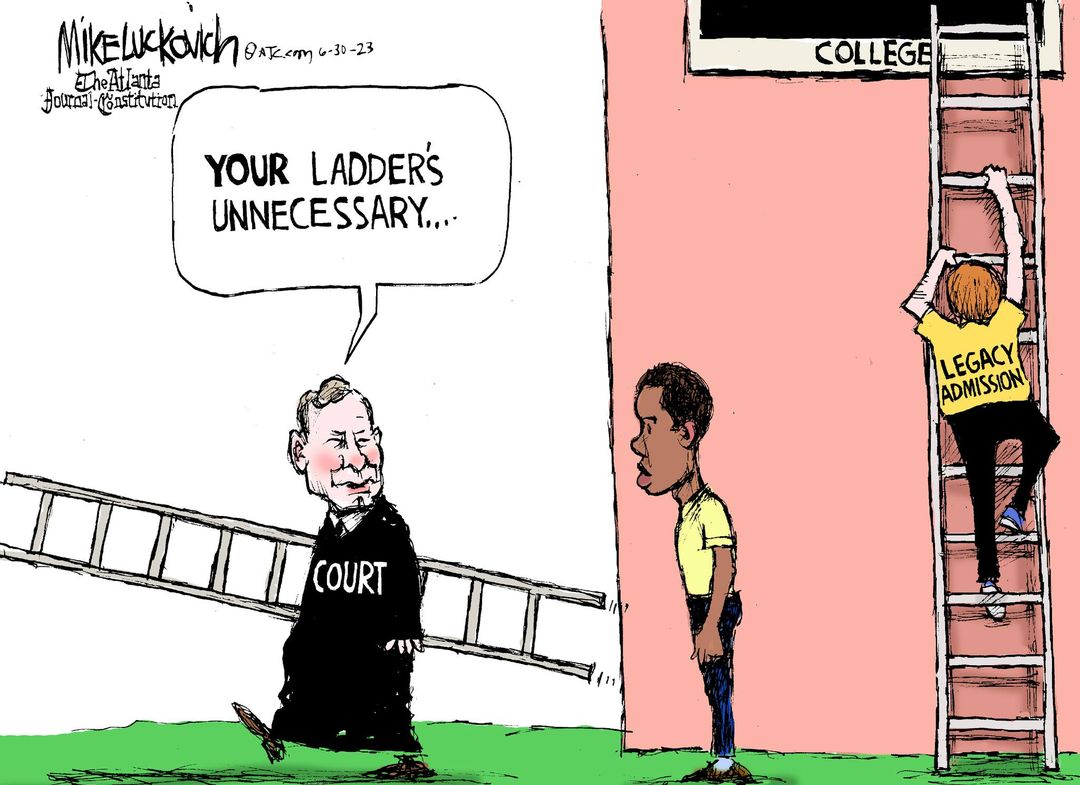
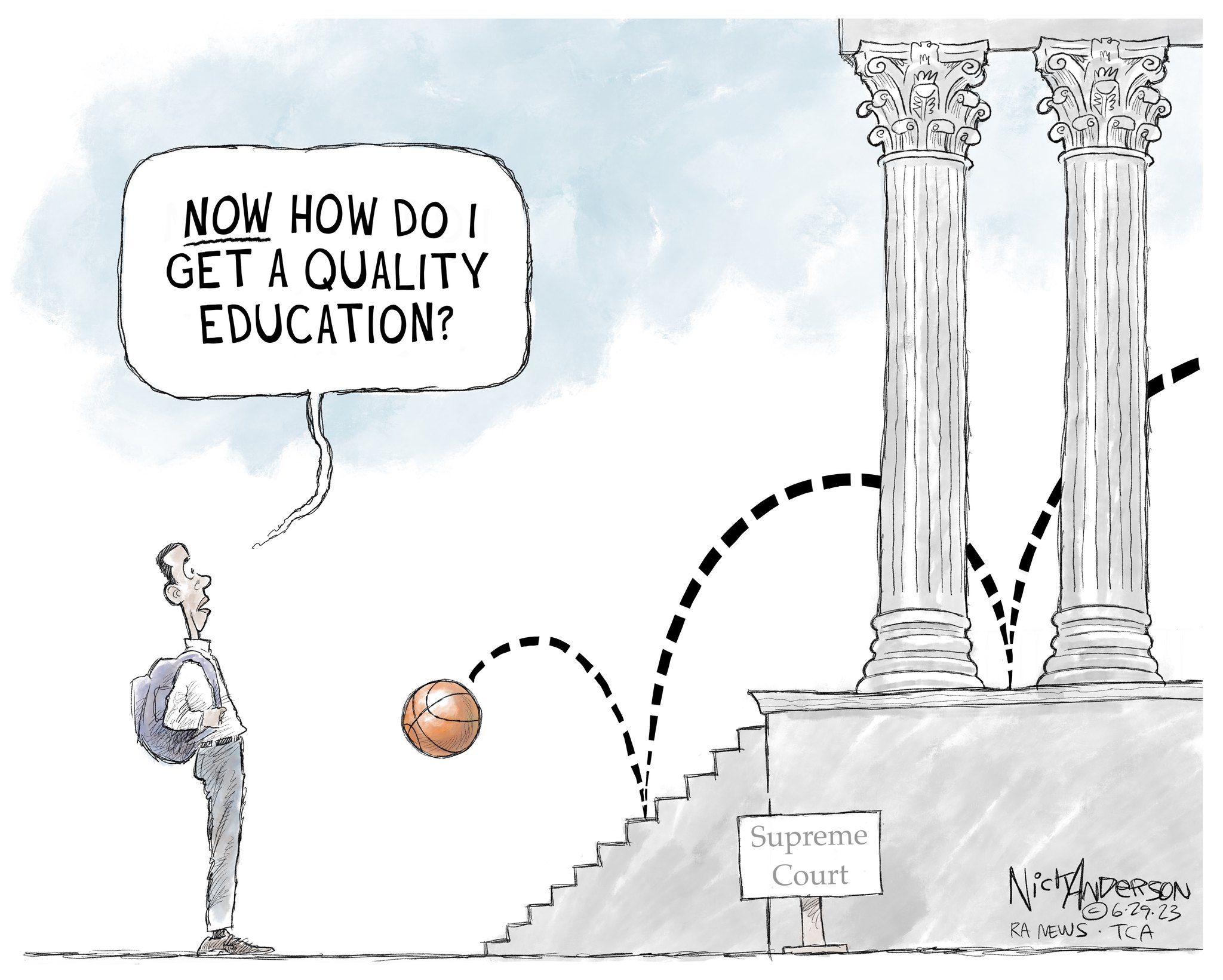

 Some of the Supremes’ action is definitely affirmative:
Some of the Supremes’ action is definitely affirmative:
